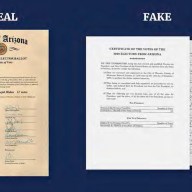By Lawrence Hurley
WASHINGTON (Reuters) – The U.S. Supreme Court on Monday agreed to weigh in on whether genetic-testing kits made by biotechnology company Life Technologies Corp infringed upon patents held by Promega Corp. The court will review a December 2014 ruling by the U.S. Court of Appeals for the Federal Circuit that tossed out some of Promega’s claims while upholding others.
In 2010, Promega sued Life Technologies, now part of Thermo Fisher Scientific Inc, in Massachusetts, accusing it of selling genetic-testing kits that infringed upon four Promega patents and a fifth that Promega licensed from the German Max Planck Society. Life Technologies responded that the kits were covered by its 2006 licensing agreement with Promega, and that the patents that belonged to Promega were invalid anyway.
Promega countered that the agreement allowed Life Technologies to sell kits only to be used in law enforcement but that the company had sold them for medical research as well.
In 2012, a jury found that Life Technologies willfully infringed upon the patents and awarded Promega $52 million. A lower court judge later set aside the verdict. The appeals court did not reinstate the jury award, saying instead that new damages had to be assessed. The appeals court ruled that four patents owned by Promega were not valid because they did not provide enough detail to put the genetic testing technology into practice. The court said that one patent Promega licensed from the Max Planck Society was valid and reversed the lower court’s finding that it was not infringed upon. The legal issue before the Supreme Court is whether a company supplying one part of a patented invention being manufactured outside the United States is liable for patent infringement. Life Technologies manufacturers only one part of its kits in the United States. That part is then exported to Britain, where the other components are manufactured. Oral arguments and a ruling are due in the court’s next term, which begins in October and ends in June 2017.
(Reporting by Lawrence Hurley; Editing by Will Dunham)


















